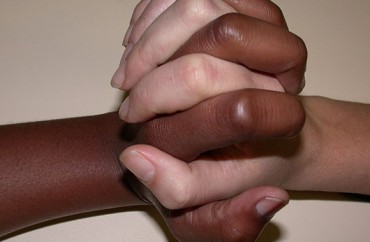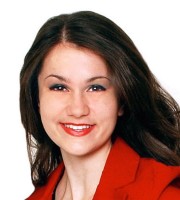
UPDATED
‘Smiling and dancing and twirling with joy’
Wheaton College’s provost of 20 years is stepping down after a contentious few months in which a theological dispute with a black professor has brought to light debates on how evangelicals should engage in discussions on diversity.
But Stanton Jones is otherwise leaving on a high note. New diversity requirements known as “Global Perspectives” and “Diversity in the United States,” the product of a decade-plus overhaul of the core curriculum, is being finalized this spring and takes effect in the fall.
It has provoked no known significant opposition or criticism at an institution sometimes referred to as the Harvard of Christian colleges – perhaps because the diversity requirement is relatively easy to satisfy.
Wheaton’s undergraduate minority enrollment this fall stood at 8.6 percent Asian American, 5.5 percent Latino American, 4.7 percent “two or more races,” 2.7 percent international and 2.6 percent African American – more than 1 in 5 Wheaton students are “of color.”
New provost Margaret Diddams, scheduled to start June 1, comes from Seattle Pacific University, which has the highest percentage of Asian and multiracial students among the 13-member Christian College Consortium.
Years of effort on racial reconciliation
Though Provost Jones announced last year that he would step down, the school’s subsequent suspension and investigation of tenured Prof. Larycia Hawkins – for her statements on Christianity’s relationship with Islam – pitted its own faculty against the administration.
Hawkins and the school made amends last month, but she quickly took a position at the University of Virginia.
Posted by Larycia Alaine Hawkins on Friday, February 26, 2016
At least since 2012, when some students mocked the worship styles of racial minorities who performed at a chapel service, Wheaton has made racial reconciliation a high priority, allocating resources into the Office of Multicultural Development and Shalom House, a multi-racial residential community.
Its efforts to emphasize diversity in the general-education requirements go back even further.
Faculty approved a diversity resolution in 2001 that pledged their support for “the implementation of the ‘other cultures’ requirement throughout the curriculum” and the inclusion of “work by women and minorities” in each department’s curriculum.
Hawkins herself was a leader on the Diversity Committee, whose purview includes recommending criteria for the diversity curriculum, committee member Raymond Lewis, professor of biology, told The College Fix.
All about ‘listening’
Departments were required to submit course syllabi for curriculum approval, and those that “deeply engage with perspectives relating to race, gender, religious or ethnic diversity” were approved to satisfy the new diversity requirement.
Many of the classes, offered in departments including Philosophy, Sociology and History, can meet more than one core requirement. They were approved by the Curriculum Committee, chaired by Prof. James Wilhoit in the Christian Formation and Ministry department.
Most students weren’t directly involved in debating and then crafting the diversity requirement, but their representatives in student government were.
“What both the Global [Perspectives] and the Diversity in the United States [requirements] intend to do is to broaden people’s experiences so students are not constricted to narrow confines of the experiences of their own race or class or ethnicity or Christianity,” Prof. Cliff Williams, who teaches philosophy and advises the Christian Feminists club, told The Fix in an interview.
 Williams provided a copy of the syllabus for his new “Race and Justice” course, which will satisfy both the Philosophy and also the Diversity in the United States general-education requirements.
Williams provided a copy of the syllabus for his new “Race and Justice” course, which will satisfy both the Philosophy and also the Diversity in the United States general-education requirements.
One of the course goals is: “Critically and respectfully engage with the experiences and perspectives of marginalized racial, ethnic, class, and gender groups in the United States, as well as one’s own experiences as a cultural being.” Required texts include Race Matters by Cornel West, who spoke at Wheaton in 2014.
Williams said that these courses will be about “listening to people who are really different, listening to ourselves, listening to God, listening to people who have different race or ethnicity, people who have been oppressed, who have experienced things we have not experience.”
He concluded: “Listening is a way of caring, a way of understanding, listening is a way of enriching one’s life, it’s a way of bearing another’s burdens, of crying with others, of smiling and dancing and twirling with joy with others, with their delights and their lives.”
The provost’s office did not respond to a request for comment on how the new requirement was developed and debated.
Following the lead of other Christian schools
Wheaton’s recent change follows steps made by other Christian colleges.
For the Cross-Cultural requirement at Trinity Christian College, courses such as “Diversity and Inequality,” “World Poverty” and “Postcolonial Literature” count for the general-education requirement.
At Westmont College, the following classes can count toward the Thinking Globally diversity requirement: “Sex, Gender and Power,” “World Religions” and “Imperialism and Independence.”
Other studies have found a predominance of religious schools ranking among the most diverse. Christian colleges were more than half of Best Colleges’ list of the 50 most diverse colleges, including Pepperdine University (Churches of Christ), St. Francis College and Santa Clara University (both Catholic).
CORRECTION: A quote attributed to Prof. Cliff Williams was written incorrectly. He said that listening is about “twirling with joy.” The sentence has been corrected.
Like The College Fix on Facebook / Follow us on Twitter
IMAGE: CliffordWilliams.net






Please join the conversation about our stories on Facebook, Twitter, Instagram, Reddit, MeWe, Rumble, Gab, Minds and Gettr.